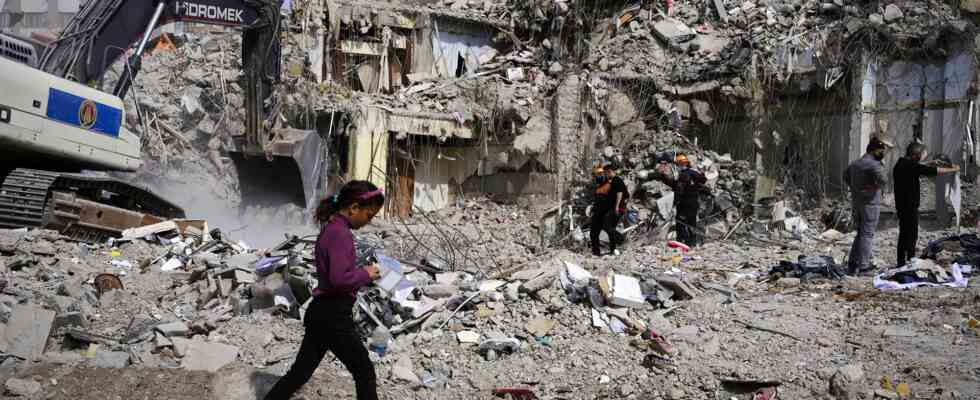Status: 03/04/2023 12:11 p.m
Shortly after the earthquake in Turkey and Syria, the German government announced simplified and accelerated visa procedures. However, in practice there are still many obstacles.
Sema Tiras is desperately trying to bring family members from Antakya to Germany. They survived the earthquake in Turkey but lost everything they owned. For weeks they have been holding out in makeshift shelters. It gets very cold, especially at night, and the situation is very bad, says Tiras. “They don’t have a house anymore, they don’t have anything anymore. They live in tents; help comes very late and not enough,” she describes the situation.
Now Tiras is sitting in the district office of Siegen-Wittgenstein, but she doesn’t feel much of the announced visa facilitation here. Entry into Germany repeatedly fails due to bureaucracy – in Turkey and in Germany. A valid passport is required for entry into Germany, but the ID cards of the Tiras family are somewhere in Antakya under the rubble. Her sister has now applied for a passport, says Sema Tiras, “but for three weeks now, when she calls, she hasn’t gotten an answer.”
Original documents must be sent to Turkey
In addition to the passport, there are other strict requirements for a visa. Among other things, a declaration of commitment must be signed in which the inviting party guarantees that they will pay for any costs incurred – currently up to 500 euros per guest per month.
Sema Tiras had to wait several weeks for an appointment at the district office in order to be able to submit this declaration of commitment. But that’s not all. “The people who submitted the declaration of commitment here receive an original and are responsible for sending it to the applicant in their home country,” explains Vivien Krämer, who is responsible for foreigner affairs in the Siegen-Wittgenstein district office. This is usually done with an express delivery by post. “Of course you have to give an address that still exists there. Since a lot was destroyed there, that also poses a challenge,” says Vivien Krämer.
Criticism of procedures that are too long
Many people who want to bring their families to Germany already fail at this hurdle. There are also numerous examples of family members driving thousands of kilometers to the earthquake region to deliver the document in person.
But all in all, everything is still taking far too long, many desperate relatives complain. It couldn’t be faster, says Kramer. The process has already been accelerated. “You have to put people off and ask them to be patient, we’ll work through everything as quickly as possible. We understand the situation, but we’re tied to bureaucracy.”
Relief especially for Turkish families
The website of the Federal Foreign Office is now primarily talking about facilitation for Turkish families. For relatives from Syria it is the same as before the earthquake: They have to travel to Jordan, Lebanon or Turkey to apply for a visa there. Getting there was difficult even before the earthquake and is likely to be even more difficult now. The appointment should now go faster.
The Federal Foreign Office reports that the authorities in Turkey and Beirut have so far issued more than 500 visas for people affected by the earthquake.
According to the Federal Foreign Office, the documents that have to be submitted have been reduced “to a minimum”. There is also a bus in the earthquake region that accepts visa applications and drives from city to city where the need is greatest.
Visas only for first and second degree relatives
In addition to the bureaucracy, there is criticism of the restriction to relatives of the first and second degree. Simplified visa procedures are therefore only possible for spouses, parents, children, grandparents, grandchildren and siblings; Aunt or uncle are eliminated. The person who lives and invites here in Germany must either have German citizenship or a permanent German residence permit.
Many Turks are frustrated by the disparity in treatment between war refugees from Ukraine and Turkish earthquake victims. Refugees from Ukraine immediately received residence and work permits. No bureaucratic obstacles were put in the way of the Ukrainians.
The Turks living in Germany, most of whom are German citizens, have followed this process very closely. They see struggling with the visa bureaucracy to bring their relatives from Turkey to Germany as discrimination. Even Sema Tiras cannot understand the whole procedure. One would take good care of the family here, she insists. If only they would.

